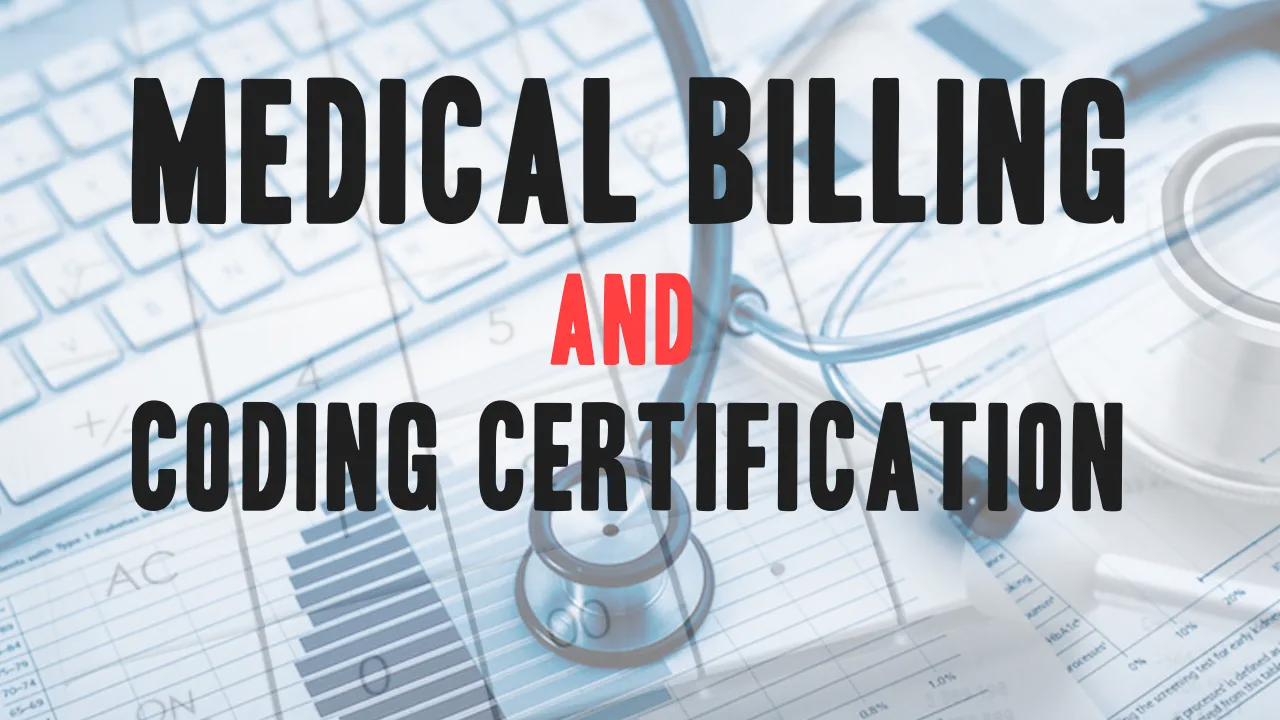Contents
- Why Certification Matters:
- Top Companies Offering Medical Billing and Coding Certification
- 1- American Academy of Professional Coders (AAPC):
- 2- American Health Information Management Association (AHIMA):
- 3- National Healthcareer Association (NHA):
- 4- American Medical Billing Association (AMBA):
- 5- Board of Medical Specialty Coding & Compliance (BMSC):
- 6- Professional Association of Healthcare Coding Specialists (PAHCS):
- Pathways to Certification:
- Benefits of Certification:
Medical billing and coding certification is a valuable credential that demonstrates proficiency in healthcare administration and opens doors to rewarding career opportunities. These codes are used for billing purposes, insurance claims, and maintaining patient records. Certification ensures that individuals have the necessary skills and knowledge to accurately perform these tasks.
Certification in medical billing and coding is highly regarded by employers in the healthcare industry and can significantly enhance job prospects and earning potential.
Why Certification Matters:
Ensures Competency: Certification programs are designed to equip individuals with the knowledge, skills, and understanding of coding guidelines, medical terminology, and regulatory requirements essential for the role.
Enhances Credibility: Holding a recognized certification demonstrates to employers and peers that you have met stringent standards of competency and professionalism in medical billing and coding.
Opens Doors to Opportunities: Many healthcare organizations prefer or require certified professionals, making certification a prerequisite for securing employment and advancing in the field.
Promotes Career Growth: With certification, you may qualify for higher-paying positions, leadership roles, and specialized areas within medical billing and coding, such as inpatient or outpatient coding.
Top Companies Offering Medical Billing and Coding Certification
There are several organizations that offer medical billing and coding certification programs, including:
1- American Academy of Professional Coders (AAPC):
AAPC stands as one of the most renowned organizations offering a plethora of certification options in medical coding and billing. Their certifications include the Certified Professional Coder (CPC), Certified Outpatient Coder (COC), Certified Inpatient Coder (CIC), Certified Professional Biller (CPB), and many more. With a focus on comprehensive training and industry-standard practices, AAPC certifications are highly respected across the healthcare landscape.
2- American Health Information Management Association (AHIMA):
AHIMA is a prominent authority in health information management, offering certifications that encompass various aspects of healthcare, including medical coding. Their certifications, such as the Certified Coding Associate (CCA), Certified Coding Specialist (CCS), and Certified Coding Specialist – Physician-based (CCS-P), reflect AHIMA’s commitment to excellence and proficiency in medical coding practices.
3- National Healthcareer Association (NHA):
NHA provides the Certified Billing and Coding Specialist (CBCS) certification, catering to individuals seeking expertise in both medical billing and coding. NHA’s certification program emphasizes real-world application and equips candidates with the necessary skills to succeed in diverse healthcare settings.
4- American Medical Billing Association (AMBA):
AMBA specializes in medical billing education and certification, offering the Certified Medical Reimbursement Specialist (CMRS) credential. This certification program focuses on billing, coding, compliance, and reimbursement, providing candidates with a comprehensive understanding of the intricacies of medical billing practices.
5- Board of Medical Specialty Coding & Compliance (BMSC):
BMSC provides certifications such as the Certified Medical Coder (CMC) and Certified Medical Compliance Officer (CMCO), catering to professionals seeking specialization in medical coding and compliance. BMSC’s certifications are recognized for their focus on coding accuracy, compliance with regulations, and adherence to ethical standards.
6- Professional Association of Healthcare Coding Specialists (PAHCS):
PAHCS offers the Certified Healthcare Billing and Management Executive (CHBME) certification, designed for professionals seeking expertise in healthcare billing and management. With a focus on leadership and strategic decision-making, PAHCS certification sets individuals on a path towards success in healthcare administration.
These certifications typically require candidates to pass an exam that assesses their knowledge of medical terminology, anatomy, physiology, coding guidelines, and regulations such as HIPAA. Some programs may also require candidates to complete a certain number of hours of coding experience or coursework before they can sit for the exam.
Earning a medical billing and coding certification can significantly enhance job prospects and earning potential in the healthcare industry. It demonstrates to employers that individuals have the skills and expertise necessary to perform the job effectively and accurately. Additionally, maintaining certification often requires continuing education to stay updated on changes and developments in the field, ensuring that certified professionals remain competent and knowledgeable throughout their careers.
Pathways to Certification:
Selecting the Right Program: Research accredited certification programs offered by reputable organizations such as AAPC, AHIMA, NHA, or PAHCS. Consider factors such as curriculum, exam requirements, and cost.
Preparing for the Exam: Enroll in preparatory courses or self-study programs to review coding concepts, guidelines, and practice exams. Gain hands-on experience through internships or entry-level positions to reinforce your learning.
Sitting for the Exam: Once you feel confident in your knowledge and skills, schedule and sit for the certification exam. Be sure to review exam guidelines, including eligibility requirements and exam format, to ensure a smooth experience.
Maintaining Certification: Many certifications require ongoing education or recertification to stay current with evolving healthcare regulations and coding practices. Stay informed about industry updates and participate in continuing education opportunities to maintain your certification.
Benefits of Certification:
Enhanced Job Prospects:
Certification demonstrates to employers that professionals have the skills and expertise necessary to excel in medical billing and coding roles. It can significantly enhance job prospects and open doors to a wide range of employment opportunities in hospitals, clinics, physician offices, insurance companies, and other healthcare settings.
Increased Earning Potential:
Certified medical billing and coding professionals often command higher salaries than their non-certified counterparts. Employers value certification as a measure of competency and may offer higher salaries or promotions to certified individuals.
Competitive Advantage:
Certification sets you apart from non-certified candidates, making you a more attractive candidate for employers seeking skilled and qualified individuals.
Professional Development:
Certification demonstrates your commitment to professional growth and excellence in your field, opening doors to networking opportunities, mentorship, and career advancement.
Industry Recognition:
Holding a respected certification earns you recognition and respect within the healthcare community, affirming your expertise and contributions to the field.
Conclusion
In conclusion, obtaining certification in medical billing and coding is not merely a goal but a crucial step towards a rewarding and fulfilling career in healthcare administration. By investing in your education, acquiring valuable skills, and earning recognition through certification, you pave the way for success, growth, and impact in this dynamic and vital sector of the healthcare industry. Start your journey today and unlock the doors to a world of opportunities in medical billing and coding.



